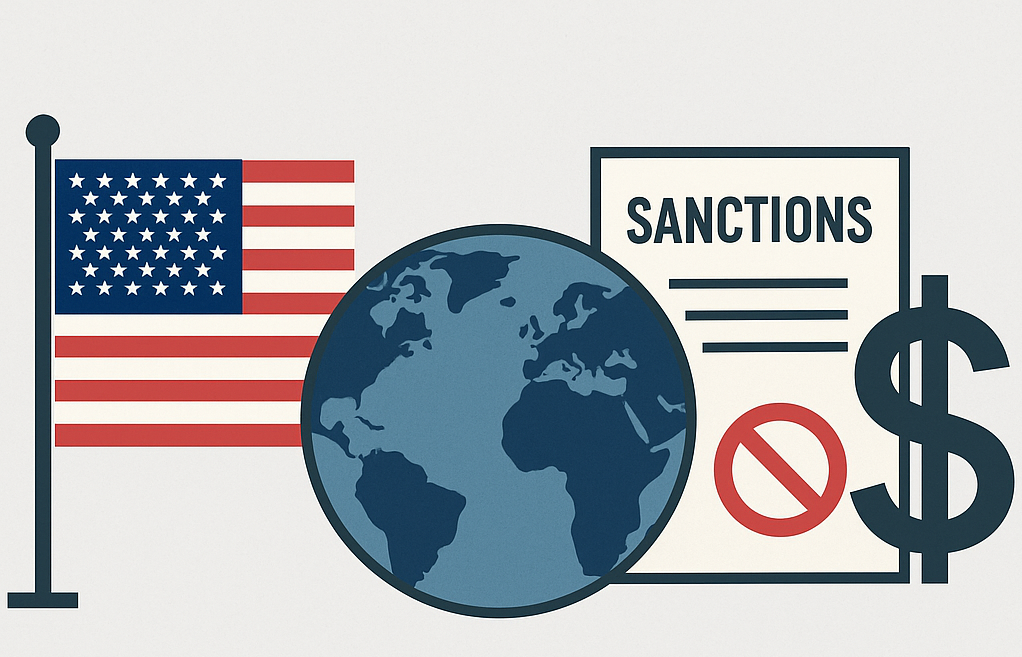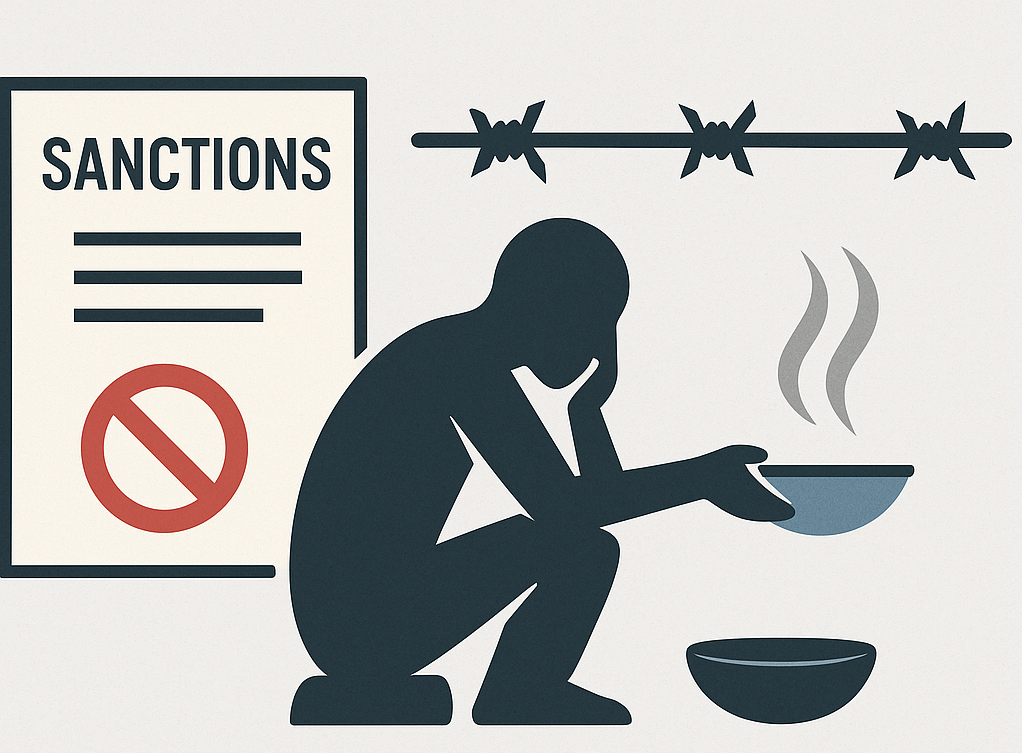In the intricate world of international relations, sanctions have emerged as a crucial geopolitical tool. Governments and international organizations often impose sanctions to compel a change in behavior, punish specific actions, or signal disapproval without resorting to military force. However, their effectiveness and consequences remain subjects of considerable debate.
This article explores how sanctions function as a geopolitical instrument, evaluates their effectiveness, and examines their intended and unintended consequences.

What Are Sanctions?
Sanctions are coercive measures imposed by one or more countries against a targeted state, group, or individual to influence behavior, punish violations of international norms, or achieve strategic objectives. They can be unilateral, imposed by a single country, or multilateral, enforced collectively through international bodies such as the United Nations or the European Union.
Types of Sanctions
Economic Sanctions: These include trade embargoes, asset freezes, restrictions on financial transactions, and investment bans.
Diplomatic Sanctions: Reduction or suspension of diplomatic ties, such as expelling diplomats or severing formal relations.
Military Sanctions: Arms embargoes and restrictions on military cooperation.
Travel Sanctions: Visa bans or travel restrictions imposed on specific individuals or groups.
Each type of sanction serves distinct political objectives and carries varying levels of impact.
The Effectiveness of Sanctions as a Geopolitical Tool
Sanctions are often perceived as an alternative to armed conflict, offering a non-violent means to address international disputes. But their effectiveness hinges on multiple factors.
Factors Determining Effectiveness
Clarity of Objectives: Sanctions are more likely to succeed when their goals are clearly defined and achievable.
Multilateral Support: Sanctions backed by broad international coalitions are typically more effective than those imposed unilaterally.
Economic Vulnerability of the Target: The greater the target’s reliance on the global economy, the more susceptible it is to sanctions.
Domestic Political Environment: Authoritarian regimes may resist external pressure more effectively than democratic governments, which are often more responsive to public discontent.
Notable Examples
South Africa (1980s): International sanctions played a significant role in pressuring the apartheid regime to initiate reforms and transition to majority rule.
Iran (2010s): Sanctions targeting Iran’s economy and nuclear program led to the 2015 Joint Comprehensive Plan of Action (JCPOA), though their long-term effectiveness remains debated.
Russia (Post-2014 and 2022): The West imposed sweeping sanctions after Russia’s annexation of Crimea in 2014 and expanded them significantly following the 2022 invasion of Ukraine. While these measures have strained the Russian economy, their success in altering Russian foreign policy is unclear.
These cases illustrate the complex dynamics involved in sanction efficacy.
Intended Consequences of Sanctions
Sanctions aim to achieve specific political, economic, or security outcomes without direct military intervention.
1. Behavioral Change
Sanctions are designed to coerce the target into altering objectionable policies or behaviors. For example, they may seek to deter nuclear proliferation, human rights abuses, or territorial aggression.
2. Punishment and Deterrence
By imposing economic pain or diplomatic isolation, sanctions serve as punitive measures intended to discourage future violations of international norms.
3. Signaling and Norm Enforcement
Sanctions can signal a country’s stance on specific issues, reinforcing international laws and norms. They often act as tools for norm enforcement, demonstrating that certain behaviors—such as the use of chemical weapons—will not be tolerated.
Unintended Consequences of Sanctions
Despite their intended goals, sanctions can also produce a range of unintended and often adverse outcomes.
1. Humanitarian Impact
Sanctions, especially broad economic embargoes, can inflict significant suffering on civilian populations. Restricted access to essential goods, inflation, and economic collapse are common consequences, as witnessed in countries like Iraq in the 1990s and Venezuela in the 2010s.

2. Strengthening of Authoritarian Regimes
Rather than fostering political change, sanctions can rally nationalist sentiment, enabling authoritarian leaders to consolidate power by blaming external enemies for internal hardships. North Korea provides a striking example of a regime that has withstood decades of international sanctions without fundamental political change.
3. Economic Spillover Effects
Sanctions may inadvertently harm third-party countries and global markets. For example, sanctions on Russian energy exports have led to global fluctuations in oil and gas prices, impacting economies far beyond the intended target.
4. Development of Alternative Systems
Sanctioned states may seek to circumvent restrictions by developing parallel financial systems or deepening economic ties with non-participating nations. Russia’s increased trade with China and Iran’s reliance on barter deals exemplify such adaptations.
The Debate Over Sanctions’ Efficacy
Scholars and policymakers continue to debate whether sanctions are a productive tool for achieving foreign policy objectives.
Arguments in Favor
Non-violent Alternative: Sanctions offer a way to exert pressure without resorting to warfare.
Moral Imperative: They allow states to uphold international norms and values.
Flexibility: Sanctions can be tailored, escalated, or withdrawn based on the target’s responses.
Arguments Against
Limited Success Rates: Empirical studies suggest that sanctions succeed in achieving stated objectives only about one-third of the time.
Collateral Damage: The humanitarian and economic consequences can undermine their legitimacy.
Long-term Ineffectiveness: Prolonged sanctions can lead to entrenched defiance rather than compliance.
Best Practices for Designing Effective Sanctions
Given the mixed record of sanctions, policymakers must carefully design and implement them to maximize effectiveness while minimizing harm.
Precision Targeting: Focus on individuals and entities responsible for objectionable policies, avoiding broad measures that hurt the general population.
Multilateral Coordination: Work through international institutions to ensure broader compliance and legitimacy.
Clear Communication: Clearly articulate the conditions for lifting sanctions to incentivize compliance.
Monitoring and Adaptation: Continuously assess the impact and adjust measures as necessary to avoid prolonged ineffectiveness or unintended consequences.
The Future of Sanctions in Global Politics
The use of sanctions is likely to remain a staple of international diplomacy. However, emerging trends and technologies could reshape their application and effectiveness.
Digital Sanctions
As cyberspace becomes a new domain of conflict, digital sanctions—restricting access to technologies, platforms, or cyber infrastructure—may grow in prominence. For example, export controls on semiconductor technologies have been employed to limit the technological advancement of rival states.
Secondary Sanctions
The increasing use of secondary sanctions, which penalize third-party actors engaging with sanctioned entities, reflects a more aggressive approach. However, this also raises tensions with allies and complicates global commerce.
Cryptocurrency and Evasion
The rise of cryptocurrencies presents new challenges to sanctions enforcement, offering potential avenues for targets to circumvent traditional financial restrictions.
Conclusion
Sanctions are a powerful yet complex geopolitical tool. While they offer an alternative to military intervention and can effectively signal disapproval or coerce policy changes, their success depends on a range of factors, including design, enforcement, and international support. Equally important are the unintended consequences, from humanitarian crises to global economic disruptions.
As the international order continues to evolve, so too will the strategies surrounding sanctions. Policymakers must balance the desire to uphold global norms with the need to avoid exacerbating suffering or provoking greater instability.
By understanding the nuances of sanctions’ effectiveness and consequences, stakeholders can make more informed decisions in navigating the challenging landscape of global geopolitics.
